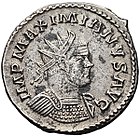
Back 確定拠出年金 Japanese Beschikbare-premiesysteem Dutch Пенсионный план с установленными взносами Russian 確定提撥制 ZH-YUE
A defined contribution (DC) plan is a type of retirement plan in which the employer, employee or both make contributions on a regular basis.[1] Individual accounts are set up for participants and benefits are based on the amounts credited to these accounts (through employee contributions and, if applicable, employer contributions) plus any investment earnings on the money in the account. In defined contribution plans, future benefits fluctuate on the basis of investment earnings. The most common type of defined contribution plan is a savings and thrift plan. Under this type of plan, the employee contributes a predetermined portion of his or her earnings (usually pretax) to an individual account, all or part of which is matched by the employer.[2]
In the United States, specifies a defined contribution plan as a "plan which provides for an individual account for each participant and for benefits based solely on the amount contributed to the participant's account, and any income, expenses, gains and losses, and any forfeitures of accounts of other participants which may be allocated to such participant's account".
